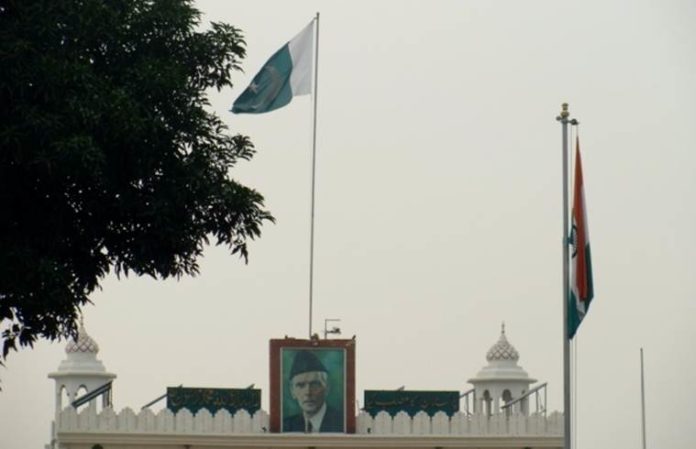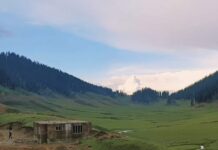COLUMN
-By RC GANJOO
Pakistan under the leadership of Imran Khan is at crossroads today.
At partition, Pakistan’s civilian institutions couldn’t develop as strongly as India’s because India had inherited the entire institutional infrastructure pre-partition. Whereas, Pakistan inherited broken remnants. Pakistan had to build everything afresh, except the military.
Pakistan’s political leadership came predominantly from the Western part, agrarian, feudal, tribal, jagirdari. Muslim civil servants, predominantly Urdu speaking went from India and very few from joined the civil services but dominated the military.
The civilian institutions, weak and ineffective, were dealt the first deathly blow by Ayub’s Martial Law. If Ayub had not taken over, Pakistan’s civilian institutions would have been stronger. Watching vast cultural differences between the military and the civilians any military general could have taken over, sooner or later.
The Pakistan Army, with a strong colonial and elitist ethos, has been keeping an eye since, on incompetent, power hungry, corrupt politicians fighting to preserve their status quo. The squabbling in political parties dominated the thinking of subsequent military leaders, leading to the inevitable Martial Laws.
Thus from 1971 on Pakistan witnessed a series of civilian administrations, actively weakening civilian institutions to preserve their own power and influence, misgovern, loot and plunder, and avoid accountability. A system further strengthened by Gen. Zia ul Haq and Gen. Musharraf, who co-opted, by and large, the same corrupt elements they had overthrown, in their attempt to prolong and legitimize their take over.
Post-1971, the first big opportunity, for reform came under Bhutto who swept to power on a wave of popular support, his demagoguery, and a defeated nation. But he failed because at heart he was a dictator and not a democrat, despite his democratic trappings and pretensions. He dislodged the democrats and socialists in his party, welcomed feudal and traditional corrupt politicians, who always, remained close to power, Military or Civilian!
And Martial Law or a quasi-military dispensation worked and Pakistan continued to receive the same tragic results.
Pakistan always hoped for a better future provided the stranglehold of a strange combination of a political mafia was broken. Also accepting of strong civilian institutions and supremacy of civilian rule. This is the only path to sustained and long term progress and development for Pakistan.
But hoping against hopes Pakistan’s political mafia will try its best to recapture power, and back to corruption, misgovernance, and exploitation, making even weaker. Their only fear, to political parties are from the Army which has been a constant threat to their loot and plunder.
In Pakistan Army where Generals, Brigadiers, Lt. Cols, Majors, etc are promoted, posted, and transferred with the same impunity, as witnessed in the police and bureaucracy, where IG’s, DIG’S, SSP’S, SP’S, SHO’s and bureaucrats are tossed about on the whims of an Asif Zardari, a Nawaz Sharif or a Shahbaz Sharif. And it continues, even today under the present administration.
Today, Nawaz Sharif and Zardari with supposedly diametrically opposing political platforms, have joined forces with the ultra-right-wing obscurantist forces of FazlurRehman and the supposedly secular nationalists like Asfandyar and Achakzai to form a strange new “Urban- Feudal – Religious – Secular” front to recapture political power.
The opposition party mission is “saving democracy” while targeting both PM Imran and the Army. , It is extremely critical at this juncture for the people of Pakistan to bring effective political system to take root.
Imran Khan has completely failed in delivering good governance. Pakistan needs a new governance model and a new Constitution, more provinces, Empowered local government, Complete revamp of electoral laws.
A complete restructuring of proportional representation, police, bureaucracy, and judiciary, and a Presidential system. But this transformation can only happen through people referendum, backed by powerful political leadership.






